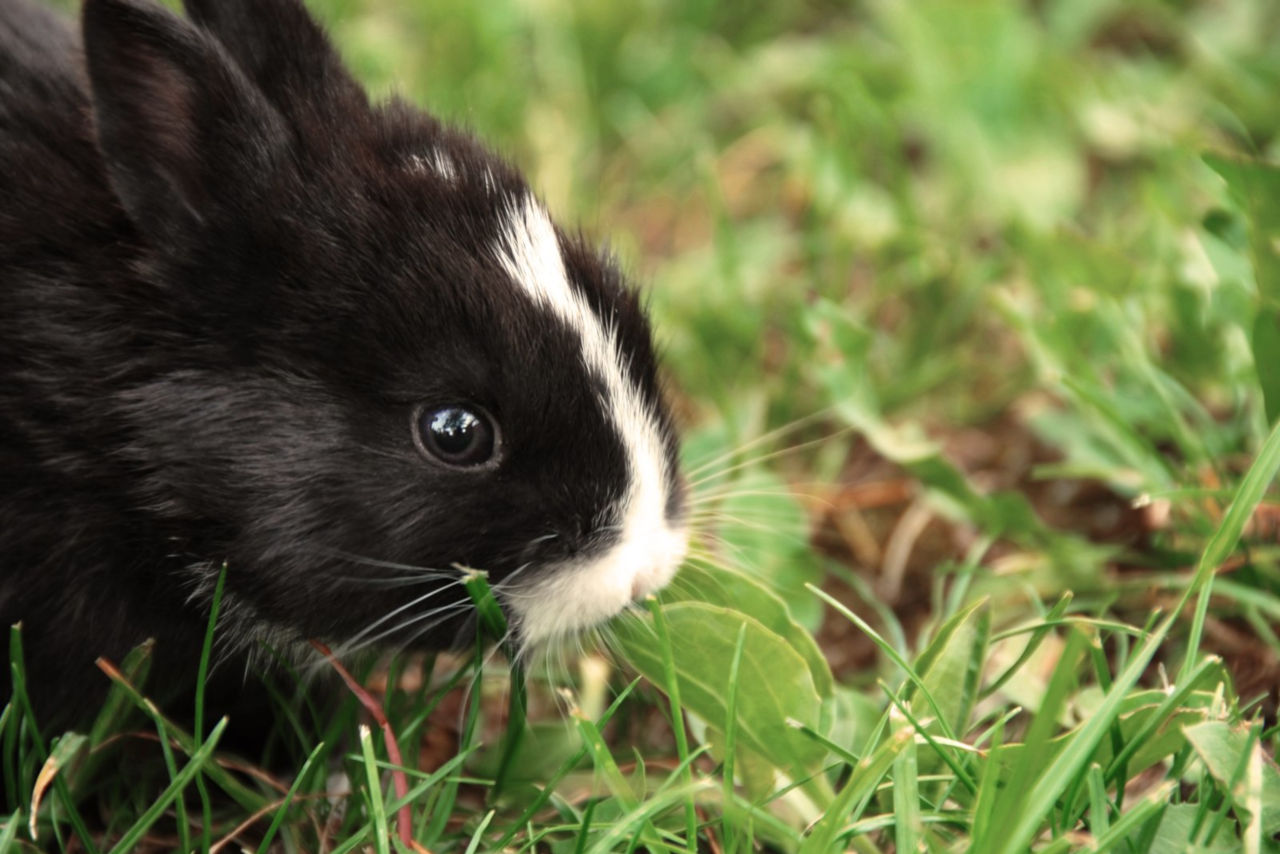Green leafy vegetables are the cornerstone of rabbits’ diet. When added to hay, leafy greens aid in their digestion. This strongly suggests that spinach is also good for your rabbits’ health.
Spinach is suitable for rabbits in small amounts. It is high in fiber and rich in vitamins A, B9, and K1 and iron, magnesium, and calcium minerals. However, it should be fed only up to twice a week and in raw form. Spinach contains oxalates, which can irritate the rabbit’s stomach.
Spinach is considered a superfood and is packed with valuable vitamins and minerals.
As with any new food, introduce your rabbit to spinach slowly and watch for any adverse reactions.
If your rabbit likes spinach, you can add it to the diet regularly, but not too often.
Can Rabbits Eat Spinach?
Spinach is a green leafy vegetable that originated in Persia. Spinach belongs to the same plant family as beets and Swiss chard. There are three main types of spinach:
- Curly-leaf spinach: This spinach has dark leaves that curl over each other.
- Flat-leaf spinach: This spinach is shaped like large, flat leaves. Flat-leaf spinach typically looks like a shovel when cut.
- Baby spinach: This spinach is similar to flat-leaf spinach. However, it is smaller because it is not quite fully grown yet. Rabbits love baby spinach because it has a sweet taste.
Health Benefits of Spinach for Rabbits
Spinach is suitable for rabbits when fed in moderation. This vegetable provides them with many health benefits.
For example, spinach is rich in fiber. This means that it is good for the rabbit’s digestive system. Rabbits require fiber more than any other nutrient.
In addition, spinach also contains insoluble fiber that bulks up and solidifies the stool.
This benefits the rabbit by producing regular and healthy feces.
Spinach has other health benefits as well. The vegetable is rich in the following nutrients and other ingredients:
- Water: 91% of a spinach leaf is water. This helps your rabbits stay hydrated and prevents weight gain.
- Vitamin A: It ensures healthy teeth and bones for your rabbits. It also keeps your animals’ skin in good condition and promotes their vision.
- Vitamin B9: This vitamin, also known as folic acid, prevents heart disease. It has been scientifically proven that rabbits benefit from folic acid.
- Vitamin K1: This is a natural anticoagulant. It prevents your rabbits’ blood from thickening. This keeps their internal organs functioning better.
- Iron: This mineral transports oxygen throughout the body. Iron prevents anemia and stimulates your rabbits’ metabolism.
- Calcium: Calcium promotes strong bones and teeth in rabbits.
- Magnesium: Rabbits need magnesium for a healthy heart. Magnesium deficiency can lead to atherosclerosis in rabbits. This is a buildup of plaque around the heart.
Can Rabbits Eat Spinach Every Day?
Spinach should only be offered as an occasional treat. Ideally, it would be best if you fed spinach to your rabbits two to three times a week.
This is often enough to get the benefits without risking an overdose.
Don’t eliminate spinach from your rabbit’s diet altogether, as spinach has several health benefits. The good far outweighs the bad.
What if My Rabbit Overeats Spinach?
The primary problem with spinach is the high oxalic acid content. Oxalates are a form of toxins. Rhubarb, for example, contains many oxalic acids and is, therefore, toxic to rabbits.
Common symptoms of oxalate excess in rabbits are itching in the mouth and difficulty urinating.
It is also possible that a rabbit is getting too many vitamins from the spinach.
- Excess vitamin A damages the rabbit’s joints.
- Excess folic acid can harm the rabbit’s nervous system.
- Excess vitamin K1 is toxic to the rabbit’s liver.
- Too much calcium will cause muddy deposits in your rabbit’s body. These can crystallize, leading to urinary tract infections and attack internal organs.
Spinach also has a large amount of vitamin C. As rabbits can produce this vitamin themselves, they do not need it from their food. If rabbits get too much vitamin C, there is a risk of kidney damage.
Is Cooked Or Raw Spinach Better for Rabbits?
Spinach must be fresh and raw. Never feed cooked or frozen spinach to rabbits.
Rabbits’ stomachs cannot digest cooked food. Also, when vegetables are cooked, the fiber content is lost.
This means the food remains in the rabbit’s digestive tract and cannot be broken down. This leads to a blockage of the intestines.
Your rabbit will then be in pain and unable to eat. Intestinal blockage can lead to death within 2 days.
If you grow your spinach in your garden, you can be sure it suits rabbits.
However, do not use chemicals in your garden or vegetable patch. Rabbits cannot vomit if they ingest a toxic substance.
How to Feed Spinach to Rabbits?
Spinach should only be an occasional snack for your rabbits. It would also help to be careful about what foods you combine spinach with. Any vegetable from the same family will increase the presence of oxalates.
If you want to feed fresh vegetables to your rabbits, you should avoid the following vegetables when choosing spinach. Give only one of these vegetables:
- Spinach
- Beetroot
- Swiss chard
- Radish
- Parsley
- Sprouts
However, you are not completely limited in what you can feed your rabbits. Any of the following vegetables go well with spinach:
- Lettuce or romaine lettuce, but never iceberg lettuce
- Peppers of any color
- Mint
- Cucumber
- Fennel
- Rosemary
- Kale
- Pak Choy
- Asparagus
- Brussels sprouts
- Oregano
- Thyme
- Carrots (be careful; carrots contain a lot of sugar)
- Radicchio
- Basil
- Clover
- Watercress
- Sage
- Arugula
- Endive
- Cilantro
Ensure to wash the spinach carefully and thoroughly before giving it to your rabbits. This will eliminate all traces of pesticides and herbicides.
If you don’t grow your own spinach, buying organic produce is best.
Can Rabbits Eat Spinach Leaves?
When we think of spinach, we think of leaves. Your rabbit will love to eat them.
Baby spinach leaves are delicious. They are sweeter, which suits a rabbit’s palate.
Baby spinach is also smaller. This is a good thing for your rabbit. It reduces the risk of overconsumption of spinach.
Also, rabbits have small mouths, so they do better with smaller foods.
There is nothing wrong with feeding rabbits adult spinach leaves in moderation. However, be a little careful with curly spinach leaves.
The curly nature of this vegetable can cause it to get stuck in the rabbit’s throat, posing a choking hazard.
Can Rabbits Eat Spinach Stems and Stalks?
These are the best parts of spinach for your rabbit. They are even better than the leaves. If you offer only part of the spinach to your rabbit, offer the stems or stalks.
The main reason for this is the fiber content. The stems and stalks of spinach contain more fiber than the leaves. This means that while your rabbit eats, it improves its health.
The stalk and stem are the parts that rabbits enjoy eating the most. Rabbits love to chew.
The leaves are quickly eaten and torn. Stems and stalks require a little more effort to chew.
When serving spinach to your rabbit, never cut off the stalk and stems of the vegetable. Doing so removes the biggest and best part of the spinach.
Can Rabbits Eat the Roots of Spinach?
If you grow your own spinach, you will have access to the roots. However, it is probably best not to allow your rabbit to eat them.
Rabbits may like the challenge, but this part of the vegetable is very high in sugar. This can negate the health benefits of spinach.
One of the benefits of spinach is that it is calorie-neutral. This is due to its high water content.
If your rabbit eats a sugary spinach part, it will negate all the good qualities.
Can Rabbits Eat Spinach in the Garden?
If you grow spinach in your garden, you will probably find that your rabbits discover it. Rabbits are natural grazers.
Your rabbits won’t think twice about nibbling on spinach once they find it.
Wild spinach is always raw, so there are no risks associated with cooking it. Plus, you’ll know precisely what your rabbit is eating.
However, eating wild spinach can also pose risks to rabbits:
- Have the spinach leaves been exposed to pesticides? The slightest traces of these chemicals can hurt a rabbit’s delicate stomach.
- Have insects and other vermin eaten your spinach? Rabbits can eat most insects without harm. Slugs, however, are poisonous to them. Bees or wasps may also be nearby, so there is a risk of being stung.
- Are there other nearby plants toxic to rabbits? Once rabbits have a taste for them, they will try other plants and mushrooms in the area.
- Rabbits can easily overeat and get sick as a result.
So, preventing your rabbits from accessing your wild spinach is best. It is safer to cut and serve it yourself.
To limit access to spinach in your garden, you can take the following steps:
- Place a protective cage around the spinach so your rabbits can’t get to it.
- Sprinkle a scent such as cayenne pepper around the spinach to deter rabbits.
- Grow your spinach indoors, such as in a greenhouse.
This will also prevent wild rabbits and hares from having access to your spinach.
Word spreads quickly through a rabbit colony when a garden has a tasty food supply. Wild rabbits could then overrun you.
Are Rabbits Allergic to Spinach?
Rabbits can be allergic to spinach. If you feed spinach to your rabbits, do so in small doses.
Too much new food at once could upset a rabbit’s digestion. When this happens, also watch for the warning signs of an allergy.
These warning signs include:
- Red and watery eyes.
- Clear and transparent discharge from the nose.
- Constant rubbing of the face. Your rabbit may use his paws or rub his face on the floor.
- Some rabbits with allergies sneeze dry, so they do not release discharge when they do this.
If you suspect your rabbit is having an allergic reaction, take the spinach away. Most allergic reactions will pass as quickly as they came.
Suitable Alternatives to Spinach for Rabbits
If your rabbit doesn’t like spinach or you don’t want to feed it, there are alternatives.
That’s the good thing about rabbits being strictly vegetarian. Most popular snacks are healthy.
Try foods from the same family. This is the same list of vegetables we have already said should not be fed with spinach.
However, if you offer these vegetables instead of spinach, they are entirely safe:
- Beetroot
- Swiss chard
- Radish
- Parsley
- Sprouts
In addition to these foods, kale is often considered the best alternative to spinach. However, just like spinach, kale must be fed in moderation.
The vegetable contains a lot of calcium, and too much of it can damage your pet’s kidneys.
The good news is that kale contains much fewer oxalates. Kale contains 0.02 g of oxalic acid per 100 g of leaves. Spinach contains 0.97 g.
Spinach is a superfood for rabbits. Fresh, raw spinach is an ideal treat about twice a week. Your rabbits will enjoy the taste and get a lot of good from it.


